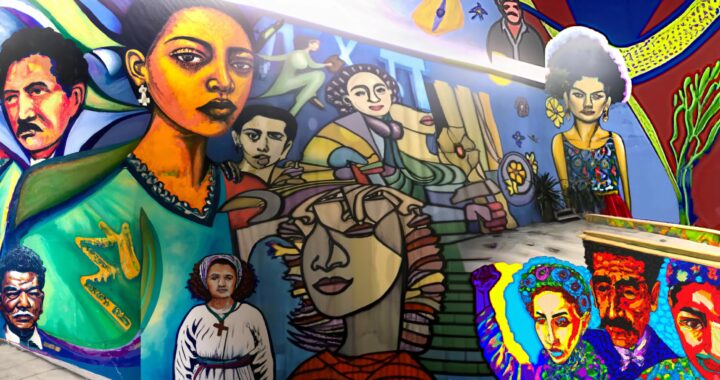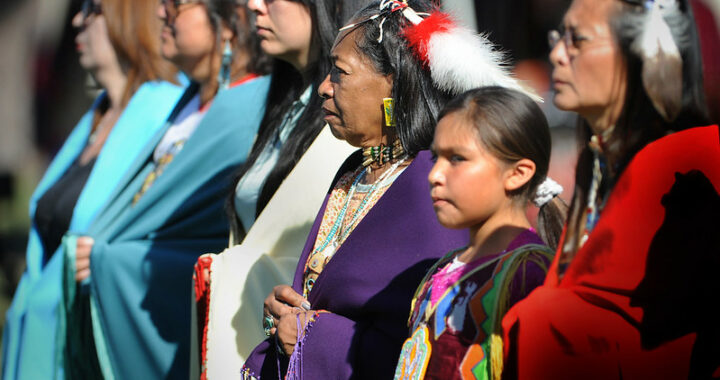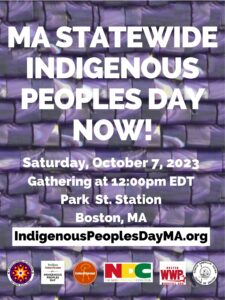A Call to Solidarity: Exploring Black-Palestinian Connections at an Encuentro Cinco Peña
By Patrick Wilson
Tonight, amidst the hum of Boston’s vibrant scene, lies an invitation not just to cultural immersion, but to a deeper understanding of shared struggles. Tucked away in a cozy space, a Peña hosted by the renowned social justice organization, Encuentro Cinco, unfolds, its heart pulsing with the rhythm of solidarity between Black and Palestinian communities.
Penas, born in the fertile soil of Latin American resistance, have long served as vibrant platforms for cultural expression and political dissent. This evening’s gathering upholds that tradition, weaving together folklore, storytelling, and music to illuminate the historical and contemporary ties that bind these two communities in their fight for liberation.
The theme, etched in the very air, resonates with urgency. Recent violence against Palestinians compels a pause, a reorientation amidst the whirlwind of events. This Peña transcends mere acknowledgment; it delves into the long-standing solidarity between Black and Palestinian Americans, a narrative often overlooked in mainstream discourse.
For decades, these communities have walked hand-in-hand, their paths converging in the pursuit of justice. From Malcolm X’s transformative pilgrimage to the Middle East to the unwavering support of Black activists for the Palestinian cause, this bond echoes through time. The US government’s unwavering alignment with Israel, perceived as fueling an oppressive occupation, has further galvanized Black support for Palestinian self-determination.
But tonight, the dialogue goes beyond mere historical exposition. It’s a conversation, an invitation to question, to challenge dominant narratives, and to amplify marginalized voices. Through the cadence of traditional music, the raw emotional honesty of poetry, and the captivating power of storytelling, the Peña fosters empathy and understanding.
The format itself is an orchestra of expression. Encuentro Cinco’s Penas weave together diverse elements, creating a tapestry of engagement. Envision spirited folkloric performances, transporting you to the heart of cultural traditions. Hear stories, whispered or shouted, that carry the weight of lived experiences. Let poetry, a weapon of truth, pierce through indifference and ignite introspection. And within this symphony of voices, a crucial discussion unfolds, exploring the multifaceted question: what does Palestinian self-determination truly mean?
The impact of such an evening ripples outwards, touching individuals and communities alike. It ignites awareness, challenging simplistic narratives and illuminating the complexities of global struggles. It fosters dialogue, bridging divides and promoting empathy across cultural and geographic boundaries. This Peña becomes a fertile ground for solidarity, where shared experiences become the foundation for collective action.
Encuentro Cinco’s commitment to social justice goes beyond mere words. Through events like this Peña, they provide a platform, a space where diverse voices can converge, where understanding is nurtured, and where action becomes a natural extension of awareness. Their contribution to the broader social justice movement lies in creating fertile ground for collective consciousness, reminding us that the fight for liberation is not confined to national borders, but pulsates as a single heartbeat across continents and communities.
As the evening draws to a close, the lingering notes of music carry within them not just the echoes of tradition, but the seeds of hope. This Peña is a testament to the power of shared narratives, a reminder that true liberation requires not just individual victories, but a collective march towards a more just world. The invitation goes beyond participation; it’s a call to action, urging us to listen, to learn, and to join the chorus of voices demanding a world where all, Black and Palestinian alike, can breathe freely. Tonight, in the heart of Boston, a Peña whispers a revolutionary message: solidarity is not just a word, it’s the song of our collective struggle.
** This piece was created with the help of ai.



